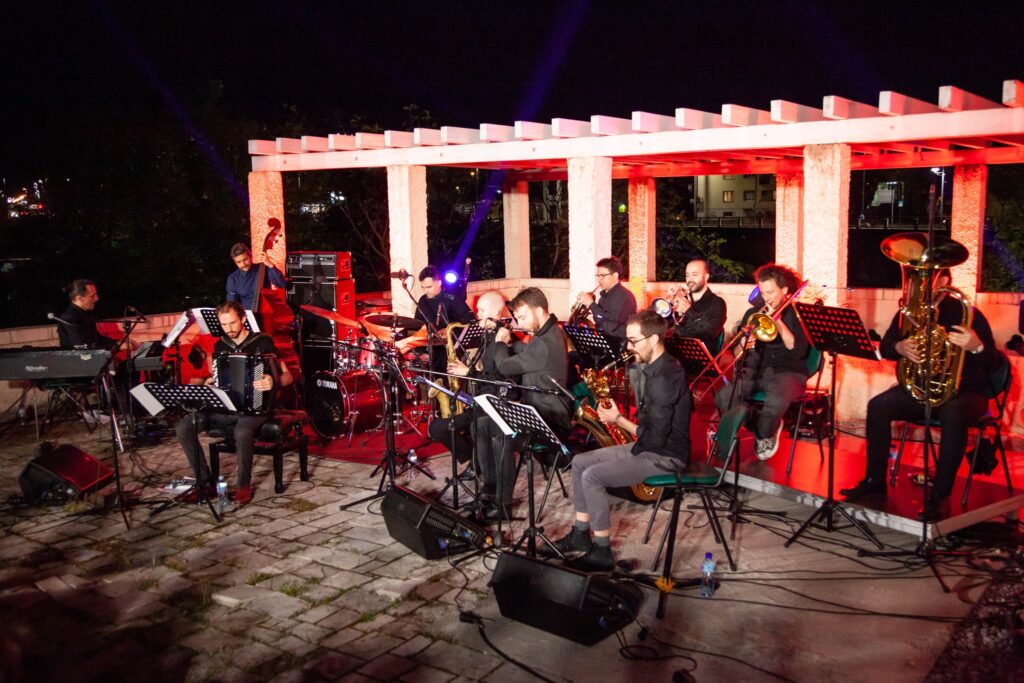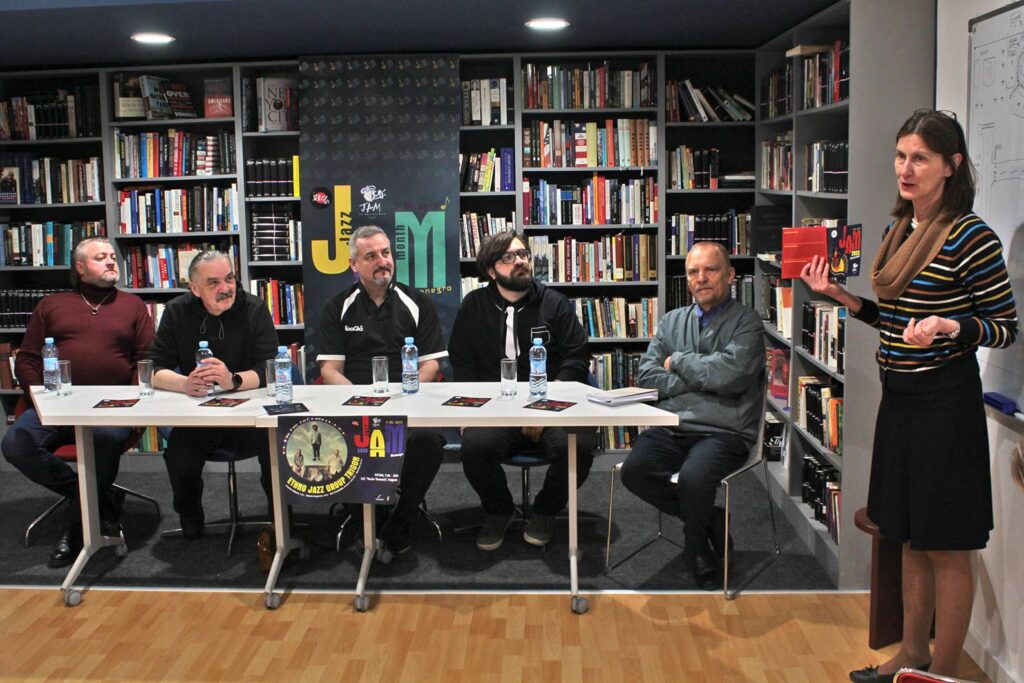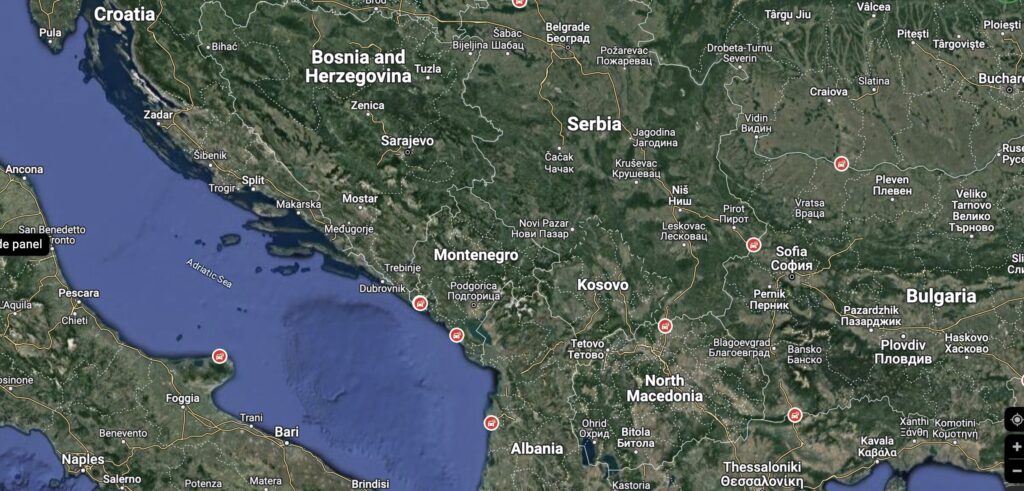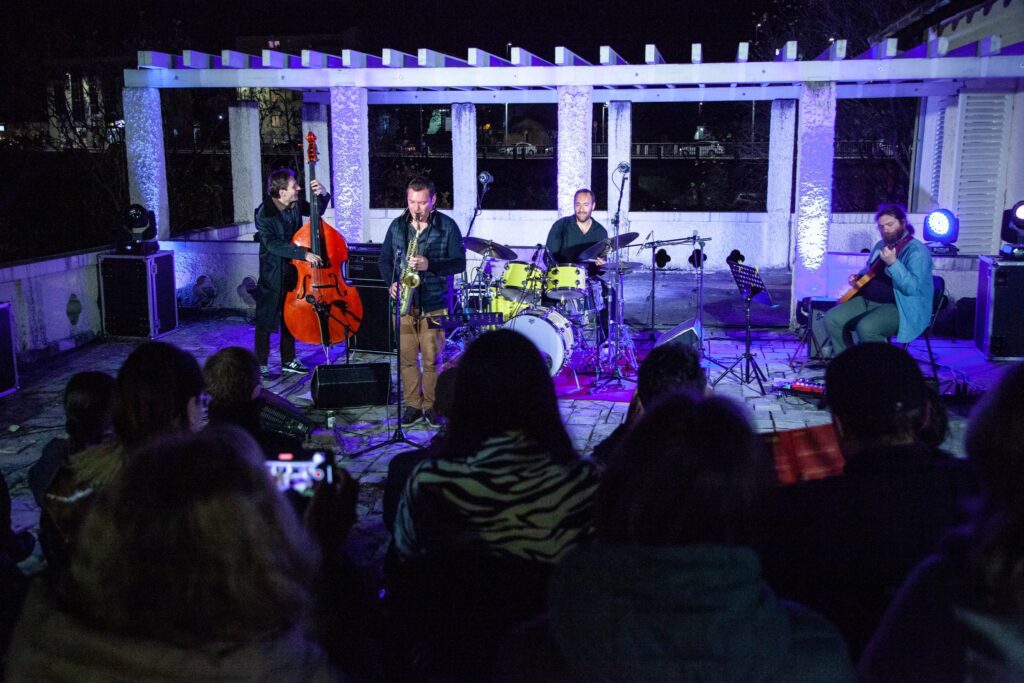As author of a volume about F. Scott Fitzgerald – the creator of the Jazz Age “brand” – I cannot resist a
detail from his masterpiece The Great Gatsby (published in 1925, shortly after the premiere of Gershwin’s Rhapsody in Blue): Reference is made to a medal with “little Montenegro” provenance. It can be assumed that Fitzgerald did not know about “little Montenegro” even as much as Bram Stoker about Transylvania. And less so, perhaps, most readers.
The fact is that in 2006, Montenegro, the ancient and audacious state nested between the Adriatic Sea, Serbia, Bosnia-Herzegovina, Dalmatia and Albania, reappeared on the world map. Shortly after such historical feat that country – small, but of immeasurable beauty – started building a good reputation in the world of jazz.
The main merit goes to the providential Maja Popovic, a pianist who has studied in Belgrade and Paris, and is fully dedicated to the promotion of culture in her homeland. I had the chance to meet her in 2001 at the Jazz Festival in Novi Sad, where I had gone together with Trigon, a phenomenal group of Romanian jazz essence. The recital of those musicians from Chisinau impressed the young concert manager so much that she decided to present them to the Montenegrin public one day.
As I shared the same good intention with her, I never stopped hoping that they would be able to demonstrate their art during the Jazz Appreciation Month (JAM) in Montenegro – an event organized annually in April, under the auspices of the Jazz Art Association Montenegro (founded and led by the same Maja Popovic). In 2023, the diplomatic situation experienced a welcome revival through the involvement of ambassador Viorel Matei Ardeleanu, who managed to boost the cultural relations between Romania and Montenegro (which shared beautiful traditions dating back to the end of the 19th century).
This is how – after 22 years of hopes, in the spring of 2023 – the band from Chisinau performed in front of the demanding Montenegrin public. The concert took place at KIC Podgorica, on the same stage where luminaries such as Carla Bley, Jason Moran, David Murray Latin Big Band, Stjepko Gut, Steve Swallow, Bojan Zulfikarpasic, George Cables, Tigran Hamasyan, Renaud Garcia-Fons and Magic Malik Orchestra had performed at previous editions of JAM.

Trigon, founded in 1992 by viola-virtuoso Anatol Ștefăneț at the suggestion of the illustrious pianist of East-Moldavian heritage Mikhail Alperin, reconfirms with each new appearance its ability to charm audiences from any part of the world. Over three decades, Ștefăneț and his empathic companions have created a synthesis between the ancestral essences of music from Europe’s Eastern Latin area and the libertarian spirit of jazz. In principle, this approach represents a kind of response over time to how George Enescu and Béla Bartók integrated and processed in their works musical traditions of the Central-Eastern European space.
The recital in question included, for the most part, tracks from the new Trigon Urban album. It transgresses the theme-with-variations pattern, being structured as polystylistic mini-suites – unpredictable, often provocative aesthetic-emotional sound frescoes. These are collective compositions, revealing the brilliant musical skills and instrumental virtuosity but also the open conviviality of the group’s members: Anatol Ștefăneț/viola, Vali Boghean/sax, flugelhorn, caval, whistles, tilinca, keyboards, etc., Dan Brumă/”multifunctional” Godin guitar, Gari Tverdohleb/drums, percussion. The same aesthetic of surprise was embodied in the standard themes played as two encores – “Caravan” and “Birdland.” Not without humor, Maja Popovic sent me the video recording of the first, accompanied by the remark “Thelonious Monk in the Balkans – in the manner of Trigon 🙂 “.
Although quite young, Slaven Ljuic – drummer/percussionist/bassist educated at Berklee College of Music – is currently the central figure of jazz in Montenegro.
I attended the recital of his Trio, characterized by improvisational freedom sustained by the leader’s irrepressible energy. The formula of drums-guitar-double bass found a suitable complement by inviting up Baptiste Herbin, a rising French saxophonist, whose torrential outpourings of notes enhanced the neo-modernist effect of the recital. Everything combined wonderfully with the nocturnal ambience of the Kuslev villa and garden, located on the banks of the Ribnica – one of the five rivers that bathe the Montenegrin capital, Podgorica.
Moreover, in the same privileged atmosphere, the concert organized for International Jazz Day (April 30) took place. The Nikolov-Ivanovic Undectet Ensemble brings together a kind of “selected group” of young jazz talents from the Balkans with studies mostly completed in the Netherlands, but who aspire to materialize their own vision on (re)defining jazz from the perspective of the convoluted current epoch. They are joined by two jazzmen of the French school: accordionist Noe Clerc and, as a guest, excellent flautist Magic Malik. What is striking – in addition to the complexity of the compositions, signed by co-leaders Vladimir Nikolov/piano & Srdjan Ivanovic/drums – is the attention paid to the timbral alloys, enhancing the shadowy tonalities of the bass-clarinet, baritone saxophone, horn and tuba. I recognized the hyper-active Bulgarian double bass player Mihail Ivanov in the rhythm section.

Back to the KIC stage, Adis Sirbubalo from Bosnia-Herzegovina performed a suite for solo piano roughly the length of a CD. In his approach, the notes have clear contours and the melodies are meaningful, diversely-cumulatively articulated but avoiding the pitfalls of asphyxiation. The musician shows full confidence in the tonal system and classical harmonies. That ideational clarity is reflected in a sympathetical language, which includes references to the sevdalinka songs, specific to the area of origin of the composer-performer.
The collaboration of Albanian vocalist Elina Duni (already confirmed through three albums issued by ECM) and the British guitarist Rob Luft (as young as he is prolific) draws attention to a gratifying phenomenon: The art of jazz is being affirmed in the country south of Montenegro, where music of this kind had been prohibited until the last decade of the past century.
Although structurally the trio of guitarist Saso Popovski has obvious affinities for models like Bill Frisell’s or Marc Ribot’s, the dominant note is provided by its subliminal relationship with the musical traditions of North Macedonia. If Popovski cultivates a language with mystical inflections and exotic allusions, he also benefits from the talent of the young Viktor Filipovski, who transforms the drums from an excessively rhythmic instrument into a quasi-melodic one, adapted to the sinuousness of the leader’s guitar-playing and to the double bass handled by Ivan Beikov. They were joined by another French guest: the remarkable multi-instrumentalist and composer Olivier Samouillan.

The French presence was also highlighted in JAM’s “collateral events”. For example, the meeting of the Balkan-France Jazz Connections Network, held under the auspices of JAM 2023 in Podgorica. This initiative encourages cooperation between the French jazz scene and several urban landmarks in the Balkans: Podgorica/Montenegro, Bitola/North Macedonia, Niš/Serbia, Tirana and Fier/Albania. Jazz Reseau France-Balkan supports organizations, educational institutions, radio stations, etc. concerned with the spreading of jazz.
I was pleased to note that three of the representatives of the aforementioned Network attended my lecture (entitled “Jazz as Universal Language”) at KIC Podgorica. Because of the press of time, I could talk with only one of them – Mr. Jaques Pauper, director of the acclaimed Couleurs Jazz Radio in Paris. Nevertheless, as always, my short stay in Montenegro proved its therapeutic value, allowing me to breathe for a few days the magic of the country, with its fascinating combination of scenic, historical, spiritual, and human beauties.







